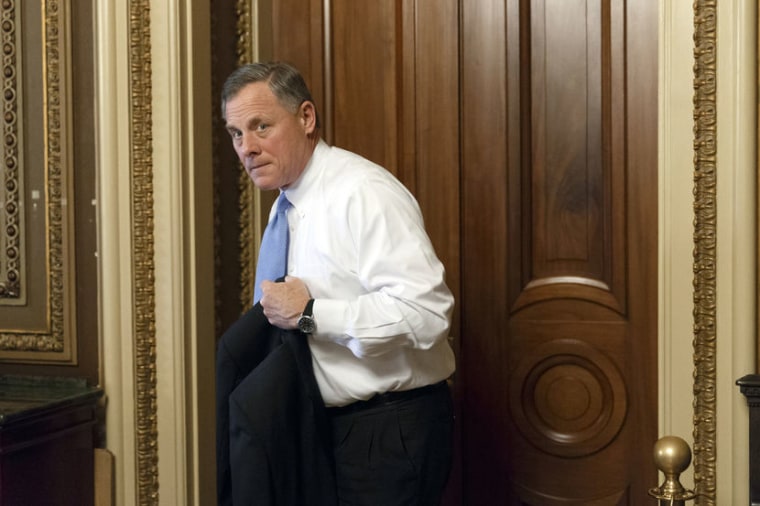Exactly three weeks ago today, on Feb. 27, Donald Trump appeared in the White House Cabinet Room and sounded extremely optimistic about the coronavirus. "It's going to disappear," the president said that afternoon. "One day -- it's like a miracle -- it will disappear."
According to the administration, as of that day, there were a total of 15 documented coronavirus cases. The virus death toll among Americans on Feb. 27 was zero.
That same day, Senate Intelligence Committee Chairman Richard Burr (R-N.C.) spoke at a social-club luncheon for a small group of well-connected constituents, and the Republican senator privately delivered a message far more dire than Trump's. We know this because NPR obtained a secret recording of his remarks.
"There's one thing that I can tell you about this: It is much more aggressive in its transmission than anything that we have seen in recent history," he said, according to a secret recording of the remarks obtained by NPR. "It is probably more akin to the 1918 pandemic."
Burr also warned attendees about foreign travel, the likelihood of school closings, military mobilization, and taxed medical facilities. Or put another way, the senator's expectations were prescient.
The report added that the forum at which the North Carolinian spoke was a club with expensive membership fees. NPR went on to report that among the attendees "were dozens of invited guests representing companies and organizations from North Carolina. And according to federal records, those companies or their political committees donated more than $100,000 to Burr's election campaign in 2015 and 2016."
It's worth noting for context that Burr's term ends in 2022, and he does not intend to seek re-election. That said, he may find it difficult to explain why he didn't offer similar warnings at the time to the public at large.
But I'm also interested in how this relates to the president. Burr, as chairman of the Senate Intelligence Committee, has access to the nation's most sensitive secrets and information related to our national security. When the senator delivered his warning on Feb. 27, Burr was likely relying on high-level briefings and reports.
Donald Trump, however, also has limitless access to U.S. intelligence. If the information Burr saw led him to believe a crisis was looming, why didn't that same information affect the president's thinking?
